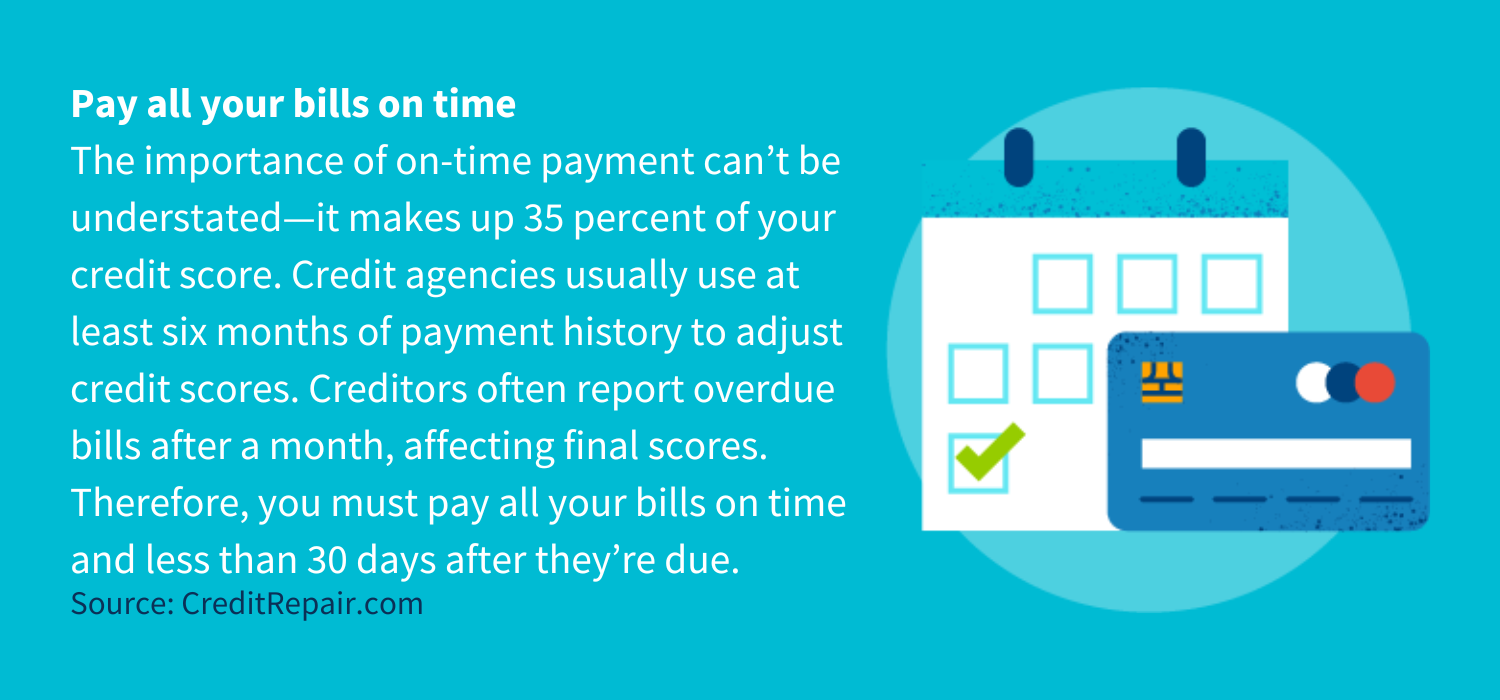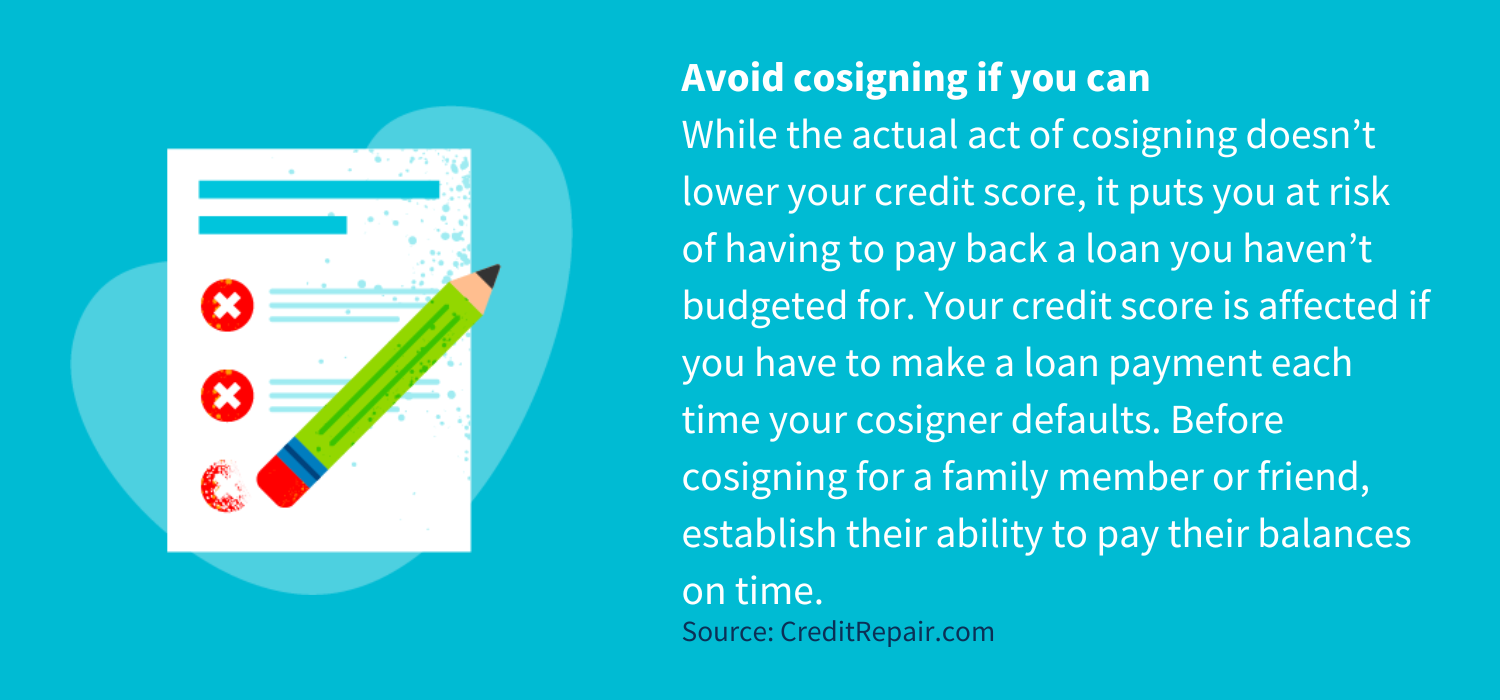
Disclosure regarding our editorial content standards.
Most of us know that having a high credit score can make life easier. People with excellent credit scores can navigate many financial obligations with more favorable terms than people with poor scores.
Fortunately, reaching the 800 credit score club is possible, no matter where your credit score stands at the moment. Find out about the 800 credit score club, including why it matters and how you can be part of it.
What is the 800+ credit score club, and why should you care?
The 800 credit score club isn’t an actual club, but being in this “club” does offer exclusive benefits for those who belong to it.
FICO® created the credit score scale used by 90 percent of top lending institutions in the United States. The scale ranges between 300 and 850, indicating how much risk a lender should expect if they loan a person money.
A score between 300 and 579 is considered Poor, and one between 580 and 669 is considered Fair. Low credit scores make it harder to get loans. When banks lend to people with poor credit, they provide higher interest rates and a shorter repayment period.
Good credit scores range between 670 and 739, while Very Good scores range between 740 and 799. The 800 credit score club features scores from 800 to 850.
Higher credit scores can:
Becoming part of the 800 credit score club can transform your life. It’s a good goal to work on increasing your credit to reach this target.
10 ways to get your credit above 800
1. Have patience
Fifteen percent of your credit score depends on the length of time you’ve displayed responsible credit practices. The longer the time, the better your score.
You can improve your credit score if you practice good credit habits. Systematically improving how you use your income reduces your reliance on credit to survive. Making the minimum payments for any credit you have establishes a record of financial responsibility.
If the going gets tough, remind yourself of everything you’ll be able to afford once you join the 800 credit score club.
2. Pay all your bills on time

The importance of on-time payment can’t be understated—it makes up 35 percent of your credit score.
Credit agencies usually use at least six months of payment history to adjust credit scores. Creditors often report overdue bills after a month, affecting final scores. Therefore, you must pay all your bills on time and less than 30 days after they’re due.
Keeping track of your bills makes it easier to pay them on time. You can maintain a spreadsheet of recurring bills. Or, you can use apps that remind you of due dates and offer autopay to make sure your payments are on time.
3. Keep your credit card balances low and your limits high
You shouldn’t max out all your credit cards if you want to enter the 800 credit score club. However, using and then paying off your balance on your credit card shows good spending habits, which reflects well on your credit.
Credit agencies refer to the ratio of your credit card balances to your overall card limits as your credit utilization rate. This rate makes up 30 percent of your credit score.
People in the 800 credit score club maintain a credit utilization rate of around 11 percent, or as low as possible. While working to achieve an 800+ credit score, you can use approximately 30 percent of your credit card balance. For example, if your credit card has a $5,000 limit, you should use a maximum of $1,500.
4. Have a good credit mix
Credit mix refers to the variety of loans you owe. This makes up 10 percent of your credit score. You can improve your credit score by showing you can obtain and manage different types of credit.
It is recommended to have a mix of installment credit and revolving credit to show a history of proper money management. Installment credit is time-limited and requires you to pay a certain monthly amount. Good installment credit options include student loans, car loans and mortgages.
Revolving credit calls for minimum monthly payments but doesn’t have a fixed end date for repayment. The most common source of revolving credit is a credit card from a bank or retailer.
Once you obtain the right credit mix, you can improve your credit score by paying the required monthly amount. Pay the minimum balance on your credit cards monthly and remit the amount for your installment credit by the due date.
5. Try not to borrow too much
While a good credit mix is great for your credit score, constantly using credit cards and bank loans hurts your ability to enter the 800 credit score club.
High borrowing data tells lending agencies you may not have enough income to pay back your credit balances. This makes lending to you a risky decision. Thus, you may qualify only for high-interest loans with high minimum monthly payments and short repayment periods.
It’s good practice to make sure less than half of your income goes to repaying credit cards and other loans.
6. Only open new accounts a couple times a year
Opening new accounts affects your credit score. For instance, applying for a new credit account allows lenders to request your credit report from credit bureaus like TransUnion®, Equifax® and Experian. Many credit inquiries can indicate that you may be in financial trouble and, thus, a risky client to provide credit to. This lowers your credit score.
Additionally, a new credit account reduces the overall length of your credit history.
Open new lines of credit only a few times a year. If you need to apply to lenders to compare their interest rates, do so within a month to reflect only one request in your credit report.
7. Look over your credit reports often
Sometimes, lenders mistakenly report credit defaulting or late payments on your account. Consistently reviewing your credit report helps you spot and fix these inaccuracies to remove their impact on your credit.
Frequently request your credit report from each credit bureau and review the details to make sure they match your bank records.
8. Avoid cosigning if you can

While the actual act of cosigning doesn’t lower your credit score, it puts you at risk of having to pay back a loan you haven’t budgeted for. Your credit score is affected if you have to make a loan payment each time your cosigner defaults.
Before cosigning for a family member or friend, establish their ability to pay their balances on time. Also, check the lender’s policies to see if they release cosigners from responsibility if a certain number of payments are made on time.
9. Stick to a budget
Maintaining a budget makes sure you don’t need to borrow beyond the minimum to get by. Your budget should cover all expenditures, including monthly bills and credit repayments.
If you have poor credit, look at your monthly expenses to see which ones you can cut out as you work to meet your required minimum payments.
You can use credit to cover some expenses if you’ve obtained a good credit rating. This helps you build a long credit history, maintain a good credit mix and create the optimum credit utilization rate for entering the 800 credit score club.
10. Dispute inaccurate information on your credit reports
Whenever you notice an error on your credit report, immediately file a dispute with all the credit agencies whose reports reflect the inaccurate information. You can submit proof of the error online and potentially have it cleared within a few months.
If you’re unsure which inaccuracies to look out for or how to dispute a credit report, you can ask for help from reputable credit repair companies like CreditRepair.com. We can handle all the technicalities of the process to repair your credit report and help you on your journey to get into the 800 credit score club.
Note: The information provided on CreditRepair.com does not, and is not intended to, act as legal, financial or credit advice; instead, it is for general informational purposes only.
Questions about credit repair?
Chat with an expert: 1-800-255-0263






